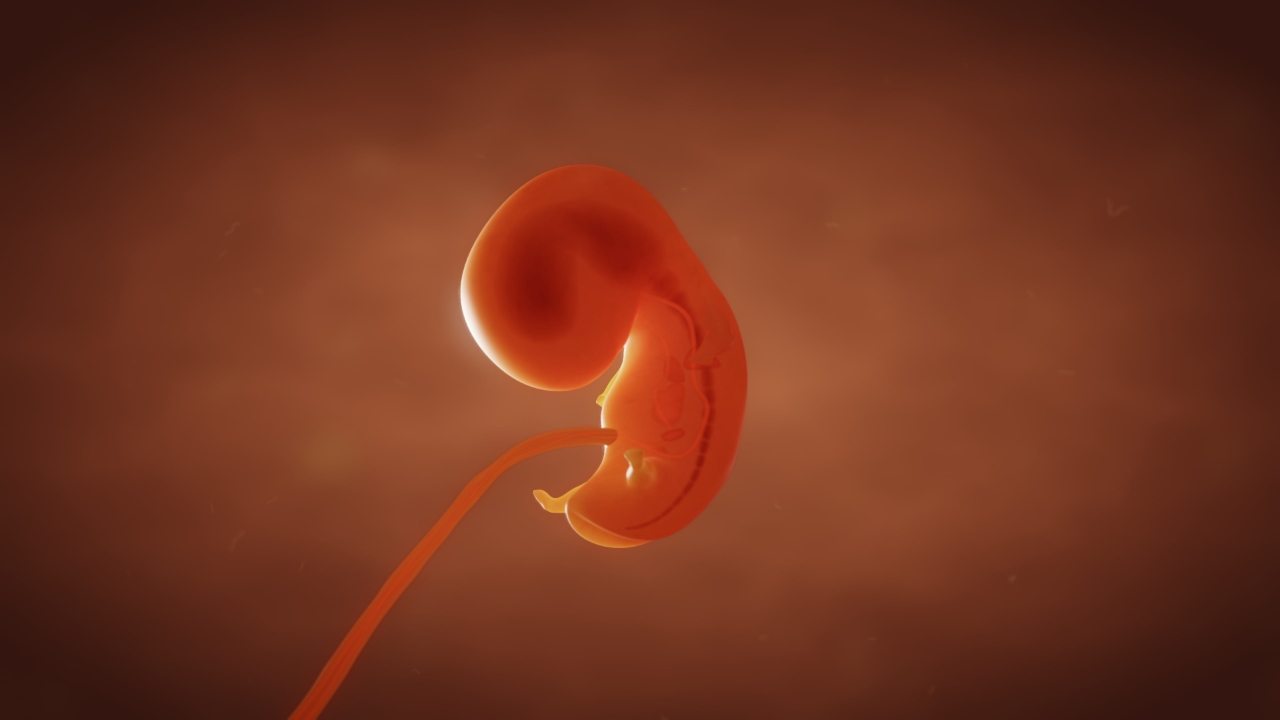Two days after Christmas we received the news that our embryo didn’t make it. About a month before, we’d begun a process called embryo adoption for the second time. It had been two weeks since our doctor transferred the embryo to my wife’s womb, and we were waiting to find out if our little one had implanted. As a couple that desired children and struggled with infertility, we never considered in vitro fertilization (IVF). Through IVF, a couple’s sperm and eggs are harvested and put together in a lab with the hope of creating embryos that can later be transferred to the woman’s womb.
Though IVF has resulted in many children for many couples, there are several serious moral and ethical problems with it. First, it represents man’s attempt to take for himself the authority of God to create human life. Second, it removes procreation of children from its natural context of marital love and intimacy. Third, it adds a consumeristic element to children and childbearing that reduces these little embryos to a commodity. Last, IVF was founded upon and usually results in the death of many embryonic children. These are the reasons we never considered it for ourselves.
Very often, there are some embryos “left over” at the end of an IVF process. This happens because their genetic parents decide, after some of their embryos have been born, that their family is “complete.” At that point, their remaining embryos are left in the freezer to await what comes next. Some may be donated to science—that is to say, killed in the name of scientific research. Some may end up abandoned, with no plan for their future. Some may perish accidentally in the failure of a cryofreezer. And some may be put up for adoption by their genetic parents, who recognize that they are children and want to give them a chance to be born and live their lives.
When we began to learn about embryo adoption, we were drawn to it for two reasons: first, for the sake of rescuing these little ones from the freezer, and second, for the joy of receiving them into our family. As you can imagine, we mourned the loss of our embryo that Christmas.
Out of the estimated 1 million embryos frozen in the United States alone (plus 1.5 million worldwide; and these are conservative estimates), around 3.5% of them were known to be abandoned as of 2013.¹ A good number have also been donated for scientific research (i.e., death) and a much smaller percentage have been placed for adoption. No one can say how many of the remaining hundreds of thousands will actually be released from the freezer and placed in the warmth of a womb. All these microscopic children are precious to God.
In February, the hidden world of lab-made embryos came into the spotlight when the Alabama supreme court ruled that frozen embryos are children under Alabama state law. They were the first state court to do so. This caused an uproar as Alabama fertility clinics began to cancel IVF treatments, fearing legal prosecution in the case of embryo death. Many people wrote to protest the harm being done to hopeful mothers when they ought to have written celebrating the protection offered to helpless children.
Then in March, the state governor signed a law protecting clinics from being taken to court over the death of an embryo. Clinics resumed business as usual. That means more children created, more stranded, more abandoned.
Losing our own precious baby has us thinking about the argument that some Christians have put forward regarding these countless stranded or abandoned embryos: they ought to be allowed to “go back to God,” as Matthew Lee Anderson is quoted as saying in an article from Christianity Today.² What does Anderson mean by this? As he says in a related essay, he means “placing them in the ground and letting them return to Him.”³ This is euphemistic language for exposing over a million precious lives to death.
It’s hard to take this suggestion seriously when you’re the parents of twins who spent the first several years of their lives in cryostorage. Maudie and Torin are 19 months old now. We adopted them as embryos. Every day we’re grateful for the lives of these two little ones who have joined our family. They deserved a chance to live, just like all of us. And in God’s kindness, they received that chance through adoption.
Adoption is the Christian way of dealing with unwanted children, because Christians love. They suffer and sacrifice to save the victims of evil. It isn’t the Christian way to avoid suffering and sacrifice by letting the victims of evil die—it isn’t love. And who are the victims here if not the helpless embryos?
In the days of ancient Rome, Christians took on the cost and difficulty of saving children exposed to death by their parents outside the city gates. Exposure was allowed by the laws of Rome, but Christians opposed it with the love of Christ. They rescued and adopted these abandoned children, raising them to know the love of God the Father who adopts us into His family at the cost of the life of His only beloved Son.
Adoption of any kind carries a cost financially, physically, and emotionally. These costs vary case by case, but they are always present. And they are never, so to speak, “natural” costs. In the case of embryo adoption, part of the cost is preparing the adoptive mother’s body with a regimen of hormones to receive an embryo into her womb. As with traditional adoption, part of the cost is also financial. As with all adoption, there is a certain emotional cost parents must pay in helping their child come to terms with their adoption as they grow up. There is always a cost to love.
Many, like Anderson himself, are concerned to tell us that adoption will not “solve” the crisis of frozen embryos. How could it, when there is such a mind-boggling number of embryos, and so very few adoptive fathers and mothers? And this is before we consider that the vast majority of these abandoned or stranded little ones are not “up” for adoption in any case—their genetic parents have not made that a possibility (or not yet). Exposing the abandoned embryos to death, under the guise of honoring their God-given lives, may seem like a neat and clean solution from one perspective.
But it’s not really a solution at all. For one, it’s entirely hypothetical. Consider—how would a Christian come into possession of even a fraction of these abandoned embryos? Or what kind of law would be required to consign a million or more abandoned embryos to death? Very clearly, the only way to apply this “solution” would be on a small scale, by convincing families unable to carry their embryos to term to expose them rather than continue to freeze them indefinitely. And in that case, why not try to convince the parents to place their embryos for adoption instead? Why not help them choose life instead of death?
Anderson’s solution is a modern version of what we could call “Pharaoh’s solution.” As Stephen, the first Christian martyr, reminded his hearers in Acts 7:19, “[Pharaoh] dealt shrewdly with our race and forced our fathers to expose their infants, so that they would not be kept alive.” Surely treating the embryos the way Pharaoh treated the Hebrew babies would show beyond a doubt that we do not regard them as fully human, but as sub-human.
Simply imagine the 1.5 million frozen embryos worldwide as 1.5 million newborns needing adoptive parents. Then imagine someone observing there could not possibly be enough adoptive parents for so many children, and positing the solution of exposing them all to death. Albeit couched in the flowery language of “letting the newborns go back to God.”
And as we consider these things, we must remember that our Lord Jesus, too, was fully human at the time of his conception by the Holy Spirit. In Luke 1:31 we are told He would be conceived as “a Son,” that is, a fully human male.
The proper response to the crisis of more than a million stranded or unwanted children worldwide cannot be to expose them to death in the manner of ancient pagan nations. Love chooses life and embraces the mess that comes with it. Love works mostly on the small scale, the scale of one good Samaritan who accepts the responsibility and privilege of showing God’s love to one person in need at a time. Even if our efforts are only a drop in the ocean. Even if our efforts only save a handful of lives out of millions. Even if our efforts do not “solve” a moral crisis. No matter what, love is the opposite of exposing innocent victims to death and placing them in a mass grave.
Granted, our society has made an evil choice to create tiny human beings in laboratories, and this is a choice with huge and terrible consequences. (Anderson understands this well and has written helpfully on the topic.) But we cannot turn from the societal evil of IVF by shedding innocent blood. We cannot answer bloodguilt with bloodguilt. We can only answer it with the love of Christ. We can only pray for the opportunity and the grace to show God’s adopting love to these unwanted, hidden little people in freezers. They are people created by God in His image. He sees and knows them, and will require an accounting for their lives.
¹On Abandoned Embryos, Timothy Collins (2008), The Linacre Quarterly, 75:1, 1-15, DOI.
²Frozen Embryos Are the New Orphan Crisis, Kara Bettis Carvalho, November 20, 2023.
³#515: Embryo Adoptioon and our Moral Imaginations What should America do with society's 'surplus embryos'? Matthew Lee Anderson, December 8, 2023.


